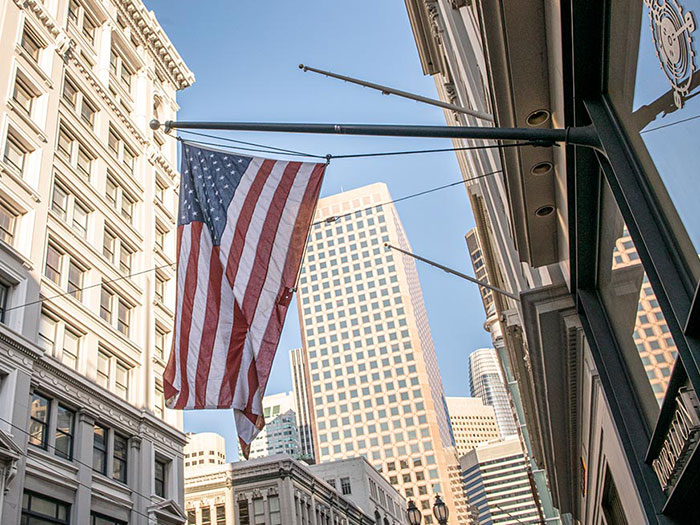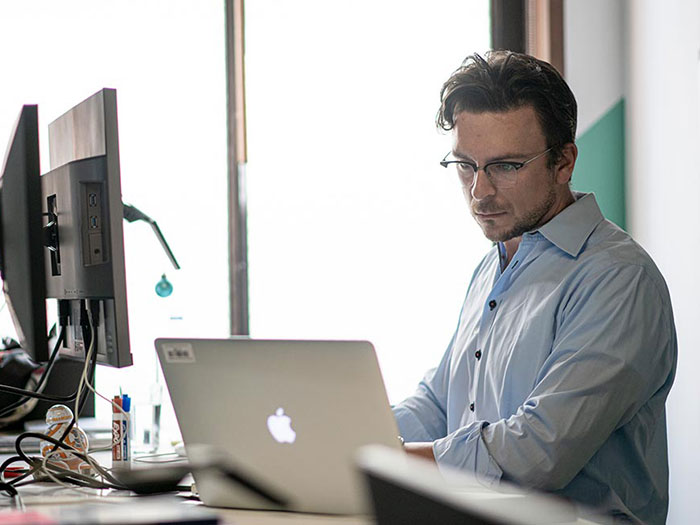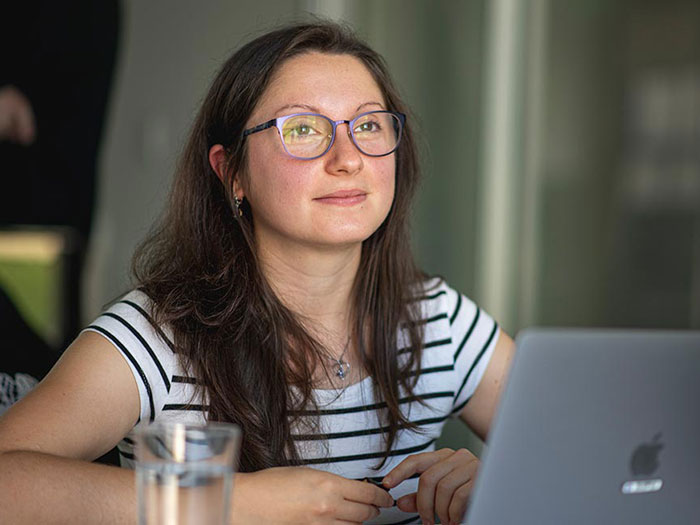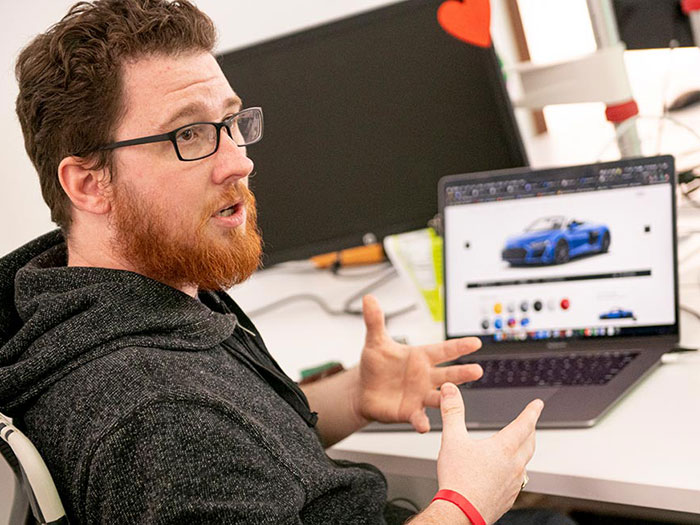Volkswagen Group Advanced Technologies: future around the corner
San Francisco is a strategic location to explore disruptive technologies and discover which of them will shape the future. The Advanced Technologies and IT Innovation team of Volkswagen Group of America is on the fast track towards future mobility.
“This is Silicon Valley, where innovative technology is booming,” says Florian Neukart who heads the Volkswagen Group Advanced Technologies team in San Francisco. The 37-year-old Austrian is an internationally renowned expert on artificial intelligence and quantum computers.
His team have a simple yet ambitious mission: to discover the technologies and trends that will shape the future. “Our goal is to make things better for Volkswagen Group . Better for our customers,” says Neukart.
Technology development in the USA

The key role of the USA in discovering new technologies is well established. Through Volkswagen Group of America, the Group is in the forefront of research.
The Advanced Technologies team has around 110 employees and is spread across several locations. In addition to San Francisco, these include Belmont, Auburn Hills and Herndon. Group-wide cooperation takes place across national borders, for example with the Volkswagen Data:Lab in Munich.
The Innovation and Engineering Center California (IECC) in Belmont employs around 300 people who research new technologies and their use in the company for all Volkswagen Group brands. In the summer of 2019, Volkswagen merged the Electronics Research Laboratory (ERL), founded in 1998, in Sunnyvale, California with the IECC.
The San Francisco atmosphere

San Francisco is home to Twitter, LinkedIn and Airbnb, and many other tech firms. The city has been a favourite of local tech-scene experts for years, which is exactly why Volkswagen opened an office for Advanced Technologies here, as early as 2016. The atmosphere in San Francisco is fairly informal - what’s important is the meet-up scene, the informal get-together after work where everyone talks about what they’re working on, which may lead to joint projects.
Even on an average working day, half the team is almost always out at appointments, on business trips or at conferences. Networking is crucial. Despite the typical laid back start-up atmosphere, the objective is tangible. Technologies that may still sound like science fiction today could give Volkswagen Group a decisive edge tomorrow. This is especially true in a world in which cars are increasingly becoming fully networked devices and mobility is becoming a digital service.
Quantum computers
Quantum computers are a good example. For a long time, the problem-solving potential of these computers was only discussed in theory. However, when Google announced in the autumn that a quantum computer had succeeded in solving a mathematical problem within a few minutes that would take conventional computers thousands of years to solve, computer scientists all over the world paid attention.
Florian Neukart and his team were able to demonstrate the practical use of quantum computers in Lisbon in November in a project during the WebSummit. Volkswagen Group and the municipal transport company CARRIS developed an intelligent traffic control system in real time.
An innovative project

The system used a quantum computer to calculate the individually fastest route for each of the nine buses, avoiding traffic jams at an early stage. In this way, it was possible to reduce the travel time of passengers and improve the flow of city traffic. The project can be transferred to any municipality and to any vehicle fleet size. “The pilot project in Lisbon is the first application in the world to use a quantum algorithm productively, starting with the analysis and forecast of traffic behaviour, determining routes on the quantum computer, and finally communicating these routes back to the bus drivers via app,” says Neukart.
“Where quantum computers can really shine is in the simulation of materials and individual molecules,” explains Andrea Skolik, one of Neukart’s colleagues. This could enable decisive progress in the development of new materials. In battery research, for example, Volkswagen Group is using quantum computers to simulate chemical processes at the molecular level. The research could pave the way to even more powerful batteries – a crucial building block for the next generation of electric cars.
Machine learning
In San Francisco, Volkswagen experts are also working on another promising technology - machine learning. Here, algorithms are fed with data until they can independently recognise patterns and perform complex tasks.
“There are numerous applications for this,” says David Von Dollen, another of Neukart’s colleagues. “In an autonomously driving car, for example, the computer can use the images from a video camera to deduce whether it is seeing a pedestrian or something else, ensuring safety.” What may seem banal actually opens up far-reaching possibilities.
Virtual Concept Car

Meanwhile, at the Volkswagen Virtual Engineering Lab, virtual reality applications for vehicle design are being developed. VR glasses and data gloves are used to view prototypes in 3D and interact with them through the gloves. They can change shapes and components, try out different materials and experience the result in a virtual test drive. This technology, called “Virtual Concept Car”, allows the team to try out many more variations in a shorter time without having to build a new prototype every time, significantly reducing production costs.
The Advanced Technologies team also works on IT development projects such as optimising websites to make the user experience more direct and engaging. A new vehicle configurator recently launched on the Audi USA website, and was then implemented across other Group brands. The aim is not only to deliver new features for the customer, but ensure they really add value.
“When we find something that could help us, the first thing we do is call here in the USA and then call Wolfsburg and other Group locations to try to find stakeholders,” says Neukart. “Then we program a software prototype. Once that’s ready, we present it to the departments where we think it might be of most interest.” And so many good ideas and developments really do catch on – from the US West Coast to Germany, into the car and all the way to the customers.
Source: Volkswagen AG
